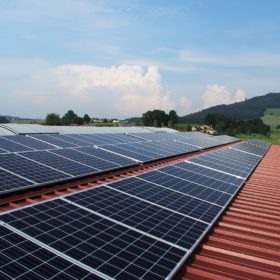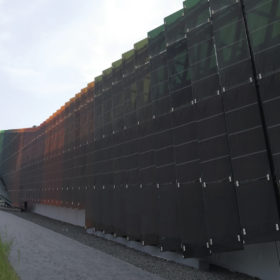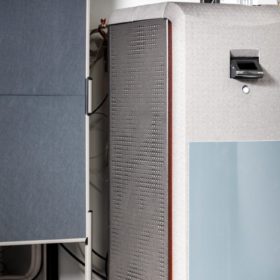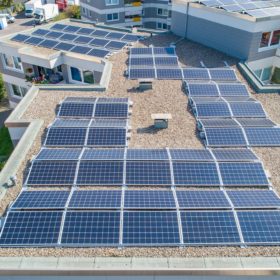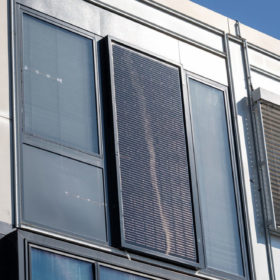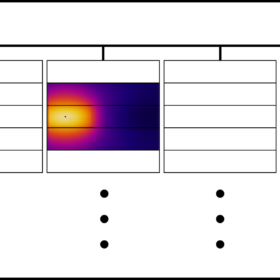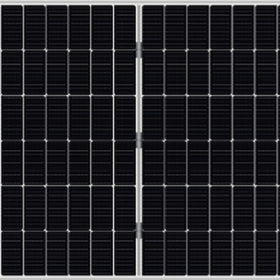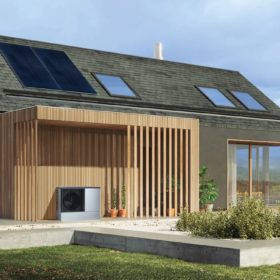South Korea installed 4.4 GW of PV capacity in 2021
South Korea’s cumulative installed PV capacity hit 22 GW at the end of 2021, according to provisional figures from the Korea Energy Agency.
New Yorkers fund 4 GW of solar for less than a cup of coffee per month
The New York Governor’s Office has submitted its financial proposal for 4 GW of distributed solar capacity by the year 2030, at an expected cost of $0.00082/kW.
The weekend read: BIPV no refuge
Deployment in the building integrated PV segment is accelerating, and so too are the number of solar products available to architects and developers. And while BIPV had long been the segment in which an array of thin-film technologies could shine, they are now in increasingly stiff competition with crystalline silicon rivals.
Vattenfall launches high-temperature heat pump solution to replace gas boilers
Developed in partnership with Dutch heating specialist Feenstra, the all-electric heat pump solution will initially be available in the Netherlands. The system’s buffer works as a heat battery that is used to provide heat to radiators and generate hot tap water.
Brazil tops 13GW of installed PV capacity
The country installed around 3GW of new PV systems in the fourth quarter of 2021 alone. Around 8.4GW of the current PV capacity is represented by solar installations not exceeding 5MW in size, and operating under net metering.
PV-assisted heat pump module facade for power supply, heating, cooling, and ventilation
Designed by scientists in Germany, the module facade has to be integrated with a building’s technical equipment. The rooms behind the facade can be supplied with solar power and at the same time heated, cooled and ventilated.
Novel design for shingled solar modules
Researchers in Singapore have created a flexible framework for designing hotspot-resistant shingled modules. Their work is claimed to be perfectly compatible with existing manufacturing techniques.
India added 935MW of private-contract backed solar in first nine months of 2021
That meant the nation reached a cumulative 4.8GW of “open-access” solar generation capacity by the end of September. At that point, there were also more than 1.1GW of open access projects in the development pipeline, according to analyst Mercom India Solar.
Jolywood launches 615W TOPCon solar module and all-black panel for residential segment
The Chinese manufacturer has launched two new bifacial products based on its n-type TOPCon 2.0 cell technology. The JW-HD156N panel has a power output of 615W, a front side efficiency of 22% and is intended for utility scale projects. The second product, called JW-HD108N, is an all-black panel with a power rating of 425W, for the residential segment.
Viessmann and 50 Hertz integrate heat pumps to stabilize German grid
The partner companies say smart heat pumps can offer flexible capacity that network operators can use for safe operation and households could also benefit from a reduction in electricity prices.

